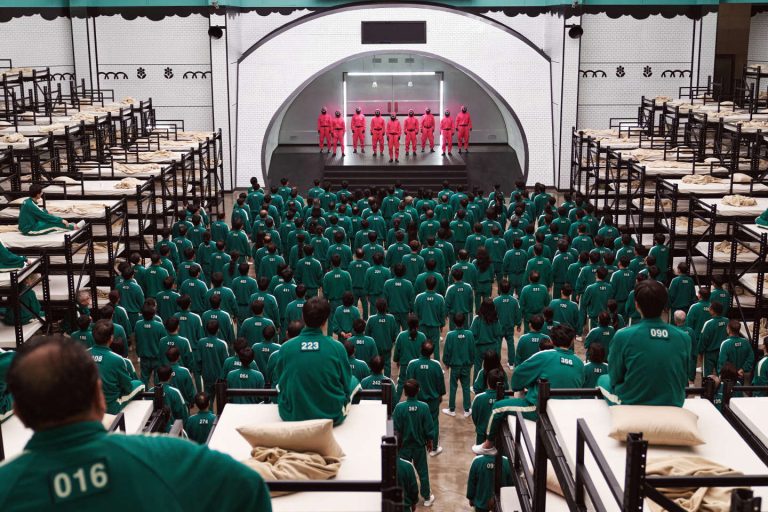How to Run a Debate Club Successfully?
To start a debate club, gather members, set meeting times, and assign roles. In the introduction, we will explore the key steps and considerations involved in running a successful debate club.
From recruiting members to organizing meetings and conducting engaging debates, this guide will provide a comprehensive overview to help you establish and maintain a vibrant debate club. A debate club can offer numerous benefits, such as improving critical thinking skills, fostering public speaking abilities, and encouraging teamwork.
By following these guidelines and utilizing effective communication strategies, you can create an inclusive and intellectually stimulating environment for members to engage in lively discussions and develop their debating skills. Let’s dive into the details of running a debate club and explore the steps involved in creating a successful forum for intellectual exchange and learning.
Benefits Of Running A Debate Club
Running a debate club offers numerous benefits, including improving communication skills, critical thinking, and teamwork abilities. It provides a platform for students to learn how to express their opinions confidently and respectfully while engaging in intellectual discourse.
Running a debate club can offer numerous benefits to its participants. From skills development to confidence-building and critical thinking, engage in this section to explore the various advantages of running a debate club.
Skills Development
- Public Speaking Skills: Debating requires participants to express their thoughts and opinions confidently in front of an audience, leading to improved public speaking abilities.
- Research Skills: Students involved in debate clubs learn to conduct extensive research on various topics, enhancing their ability to gather and analyze information effectively.
- Effective Communication: Debating promotes the development of strong communication skills, including the ability to articulate arguments clearly, listen actively, and respond thoughtfully.
- Active Listening: Debaters must listen attentively to their opponents’ arguments, strengthening their active listening skills and fostering a better understanding of different perspectives.
- Persuasive Writing: Preparing debate speeches involves persuasive writing, honing skills such as organizing thoughts logically, presenting evidence convincingly, and constructing coherent arguments.
Confidence-Building
- Self-Expression: Debate clubs encourage participants to express their ideas confidently, enabling them to find their voice and express themselves articulately.
- Overcoming Fear: Regularly participating in debates can help students overcome the fear of public speaking and build self-assurance when presenting their viewpoints.
- Building Resilience: Debating involves handling constructive criticism and counterarguments, teaching individuals to handle conflict gracefully and stay composed under pressure.
- Confronting Challenges: Engaging in debates allows students to develop resilience by tackling challenging topics, persuading others, and defending their ideas in a respectful manner.
Critical Thinking
- Analytical Skills: Debaters learn to analyze complex issues from multiple perspectives, assessing evidence critically, and developing well-reasoned arguments.
- Problem-Solving Abilities: Through debating, individuals enhance their problem-solving skills by examining different angles of an issue and proposing innovative solutions.
- Understanding Diverse Perspectives: Engaging in debates exposes participants to various viewpoints, fostering empathy and the ability to understand and evaluate diverse opinions.
- Evaluating Evidence: Debaters are trained to evaluate the credibility and reliability of sources, enhancing their ability to discern accurate information from biased or misleading content.
- Logical Reasoning: Debating nurtures logical reasoning skills, enabling participants to construct logical arguments, identify fallacies, and challenge flawed reasoning.
Running a debate club provides a myriad of benefits, including skills development in public speaking, research, and effective communication. It also fosters confidence-building by promoting self-expression, overcoming fear, and building resilience. Furthermore, debate clubs encourage critical thinking by enhancing analytical skills, problem-solving abilities, and the evaluation of evidence.
Consider starting a debate club to empower individuals with these invaluable skills and competencies.
Setting Up A Debate Club
Setting up a debate club is an exciting endeavor that can enhance critical thinking and communication skills. Learn the essential steps to effectively run a debate club and create a platform for engaging and thought-provoking discussions.
Establishing goals and objectives:
- Begin by defining the purpose of your debate club. This could include fostering critical thinking, improving public speaking skills, or promoting respectful dialogue.
- Determine the club’s objectives, such as organizing regular debates, participating in competitions, or inviting guest speakers for informative sessions.
- Create a clear mission statement that encapsulates the club’s goals and objectives. This will help attract like-minded individuals and ensure everyone is on the same page.
Recruiting members:
- Spread the word about your debate club through various channels, such as social media, flyers, or announcements at schools and universities.
- Consider reaching out directly to potential members who have expressed interest in debates or public speaking.
- Host an open house or information session to provide interested individuals an opportunity to learn more about the club and its benefits.
- Collaborate with other organizations or clubs on campus to cross-promote and attract a diverse range of individuals.
Securing a meeting space:
- Contact your school or university administration to inquire about available spaces for club meetings.
- Consider reserving a classroom, library study room, or common area with adequate seating and a conducive environment for debates.
- If necessary, explore off-campus venues, such as community centers or local libraries, that may be available for use.
- Ensure that the meeting space is easily accessible, comfortable, and has necessary amenities, such as audiovisual equipment and a sound system.
Remember, setting up a debate club requires careful planning and effective communication to create a welcoming and engaging environment. By establishing clear goals and objectives, recruiting passionate members, and securing a suitable meeting space, you can lay a strong foundation for a successful debate club.
So, let’s get started and empower individuals to express their opinions, engage in healthy discussions, and develop valuable communication skills.
Organizing Debate Sessions
Learn how to effectively run a debate club and organize engaging debate sessions with these expert tips and strategies. Gain insights into the key elements of successful debate clubs and enhance your facilitation skills to encourage lively discussions.
Organizing debate sessions is a crucial aspect of running a successful debate club. It involves selecting debate formats, assigning debate topics, and creating debate schedules that ensure smooth and engaging sessions. Let’s take a closer look at each of these steps:
Selecting Debate Formats
To keep your debate club interesting and engaging, it’s important to introduce a variety of debate formats. Here are a few popular formats you can consider:
- Traditional Debate: In this format, teams present arguments for or against a motion, with a defined structure comprising of opening statements, rebuttals, and closing statements.
- Oxford-Style Debate: This format involves a proposition team and an opposition team, where the proposition team establishes the motion, and the opposition team challenges it.
- Lincoln-Douglas Debate: Named after the famous debates between Abraham Lincoln and Stephen Douglas, this format focuses on a one-on-one debate with a specific topic and a structured format.
- World Schools Debate Style: This format combines elements of different debate styles to encourage critical thinking and versatility among debaters.
Remember to choose debate formats based on the skill level and interests of your participants, and mix them up to keep things fresh and challenging.
Assigning Debate Topics
Selecting thought-provoking debate topics is crucial to foster lively discussions. Here are a few guidelines for assigning debate topics:
- Relevance: Choose topics that are relevant to current events, social issues, or subjects that your participants are passionate about.
- Balance: Ensure a fair balance by assigning topics that allow for arguments from different perspectives, promoting inclusivity and a healthy exchange of ideas.
- Challenge: Assign topics that push participants outside of their comfort zones, encouraging them to research and develop persuasive arguments.
- Variety: Incorporate a mix of serious and light-hearted topics to cater to different interests and keep the debates engaging.
By selecting appropriate debate topics, you can inspire participants to dive deep into research and develop their critical thinking and communication skills.
Creating Debate Schedules
An organized debate schedule is key to keeping your club running smoothly. Consider the following steps when creating a debate schedule:
- Frequency: Decide on the frequency of debate sessions, whether it’s weekly, bi-weekly, or monthly, based on the availability of your members and the resources at hand.
- Rotation: Set up a rotation system to ensure that all members get an equal opportunity to participate as speakers and judges.
- Preparation Time: Allocate sufficient time for participants to prepare their arguments. This could range from a few days to a week, depending on the complexity of the topic.
- Time Limits: Determine time limits for each segment of the debate, including opening statements, rebuttals, and closing statements, to maintain a structured and organized session.
Remember to communicate the debate schedule well in advance to ensure participants have ample time to prepare, and be flexible in case adjustments need to be made.
By adhering to these guidelines for selecting debate formats, assigning debate topics, and creating debate schedules, you can organize engaging and impactful debate sessions for your club members. Happy debating!
Running Debate Sessions
Discover the secrets to successfully running a debate club with engaging and informative debate sessions. Learn valuable tips and techniques to make your debate club thrive.
Setting Up Debate Rules And Guidelines:
- Clearly define the purpose and objectives of your debate club. This will help guide your rules and guidelines.
- Establish a code of conduct that promotes respectful and constructive communication among participants.
- Determine debate formats that suit your club’s goals, such as parliamentary or Lincoln-Douglas style debates.
- Set clear expectations regarding preparation, participation, and time management for each session.
- Outline scoring criteria or evaluation rubrics to provide feedback and ensure fair judging.
- Encourage diverse viewpoints and inclusivity by establishing rules that prevent discrimination and promote equal opportunity.
- Emphasize the importance of evidence-based arguments and discourage personal attacks or emotional appeals.
- Promote active listening skills by requiring participants to summarize or respond to opposing arguments.
- Consider implementing time limits for speeches and cross-examinations to ensure equal opportunities for all debaters.
- Continuously review and update your rules and guidelines to keep them relevant and effective.
Preparing Debate Materials:
- Develop a list of debate topics that align with your club’s objectives and appeal to your members’ interests.
- Provide debaters with research resources, such as reputable websites, academic journals, or books, to enhance their arguments.
- Compile a set of sample debate cases to help beginners understand the structure and content of a well-constructed argument.
- Create a list of potential arguments or counter-arguments for each topic to provide a starting point for debaters.
- Design debate templates or worksheets to help participants organize their arguments and evidence effectively.
- Prepare materials for judges, including scoring sheets or evaluation forms, to ensure consistency and fairness in the evaluation process.
- Gather and organize relevant statistics, data, and quotations that can be used as evidence during debates.
- Encourage debaters to practice impromptu debates and develop effective rebuttal strategies.
- Consider providing training or workshops on research skills and critical thinking to enhance participants’ debate preparation.
Facilitating Debate Sessions:
- Start each session with a brief introduction, including the topic, format, and any announcements or updates.
- Assign roles to participants, such as moderator, timekeeper, or point of information (POI) coordinator.
- Ensure a respectful and inclusive atmosphere by reminding participants of the code of conduct and expectations for behavior.
- Provide each debater with a designated speaking order and time allocation for speeches and rebuttals.
- Encourage active audience participation by allowing questions or POIs during speeches or designated questioning periods.
- Manage time effectively to ensure each debater has an equal opportunity to present their arguments.
- Foster a balanced discussion by alternating between speakers from different sides or perspectives.
- Encourage respectful and constructive feedback from judges after each debate, highlighting strengths and areas for improvement.
- Facilitate post-debate discussions where participants can reflect on the arguments presented and share their insights.
- Continuously evaluate and adjust your facilitation techniques based on feedback from participants to enhance the overall debate experience.
Evaluating Debaters
Learn how to effectively evaluate debaters in your debate club. Discover strategies for providing constructive feedback and promoting growth in debating skills.
Developing Evaluation Criteria
To ensure a fair and consistent evaluation process, it’s important to establish clear criteria for assessing debaters. This will help you focus on the key elements and skills that make a strong debater. Here are some factors to consider when developing your evaluation criteria:
- Argument Structure: Assess how debaters formulate and structure their arguments. Look for a clear, logical flow and the ability to support claims with evidence and reasoning.
- Delivery and Presentation: Evaluate the debaters’ delivery and presentation skills. Pay attention to their tone, volume, and body language. Effective nonverbal communication can enhance their message.
- Use of Evidence: Consider the quality and relevance of the evidence presented by debaters. Evaluate their ability to cite credible sources and use data effectively to support their arguments.
- Critical Thinking: Assess the debaters’ analytical skills and ability to think critically. Look for their capacity to evaluate counterarguments, identify flaws in reasoning, and provide thoughtful rebuttals.
- Engagement and Rebuttal: Evaluate how well debaters engage with their opponents’ arguments. Consider their ability to listen actively, ask relevant questions, and construct persuasive rebuttals.
- Time Management: Assess the debaters’ time management skills. Look for their ability to effectively utilize the allocated time and stay on track during speeches and rebuttals.
- Teamwork and Collaboration: For team debates, evaluate how well the debaters work together. Consider their ability to coordinate their arguments, build on each other’s points, and support their team members.
Developing clear and comprehensive evaluation criteria will enable you to provide fair feedback to debaters and effectively assess their performance.
Providing Constructive Feedback
Offering constructive feedback is crucial for the growth and improvement of debaters. When providing feedback, focus on highlighting both strengths and areas for improvement. Here are some tips for delivering constructive feedback:
- Be Specific: Provide detailed feedback that focuses on specific aspects of the debaters’ performance. This will enable them to understand exactly what they did well or need to work on.
- Focus on Behavior: Instead of making personal attacks, concentrate on critiquing their behavior during the debate. Comment on their approach, arguments, and delivery, and avoid making it about their character.
- Balance Praise and Criticism: Recognize the debaters’ strengths and acknowledge the aspects they excelled in. Combine this with constructive criticism to create a balanced feedback approach.
- Offer Recommendations: Provide actionable recommendations for improvement. Suggest strategies to enhance their argument structure, delivery, or critical thinking skills.
- Encourage Reflection: Encourage debaters to reflect on their performance. Ask them to identify areas they think they did well in and areas they would like to improve. This self-reflection can be valuable for their growth.
- Create a Safe Environment: Ensure that feedback sessions are conducted in a supportive and non-threatening environment. Foster an open dialogue where debaters feel comfortable asking questions and seeking clarification.
By providing constructive feedback, you help debaters understand their strengths, identify areas for growth, and ultimately enhance their debating skills.
Recognizing And Rewarding Progress
Recognizing and rewarding debaters for their progress is essential for motivation and continued growth. Here are some ways to acknowledge the efforts and achievements of debaters:
- Verbal Praise and Encouragement: Regularly acknowledge and praise debaters for the improvements they make. Use verbal affirmations to recognize their hard work and dedication.
- Certificates and Awards: Consider presenting certificates or awards to outstanding debaters. This can be done for achievements like best speaker, most improved, or teamwork accolades.
- Public Recognition: Celebrate debaters’ progress by publicly acknowledging their accomplishments. This can be done through announcements during club meetings or showcasing their achievements on the club’s website or social media platforms.
- Peer Feedback: Encourage debaters to provide feedback to their peers. This creates a supportive and collaborative environment where everyone benefits from constructive criticism.
- Opportunities for Leadership: Recognize debaters who consistently demonstrate exemplary skills by offering them leadership roles within the club. This can include mentoring new members or assisting with debate preparation.
- Competitions and Debating Leagues: Participating in external competitions and leagues provides debaters with additional opportunities for recognition. Encourage club members to take part in such events and celebrate their achievements.
By recognizing and rewarding progress, you motivate debaters to strive for excellence and foster a positive learning environment within your debate club.
Promoting The Debate Club
Learn the fundamentals of running a successful Debate Club with our expert tips and strategies. Discover how to engage participants, facilitate productive conversations, and create a dynamic learning environment.
Running a successful debate club involves more than just organizing debate sessions and selecting topics. To ensure that your club attracts participants and garners interest, it’s essential to promote it effectively. Here are some strategies to help you promote your debate club:
Creating A Club Website Or Social Media Presence:
- Establish an online presence for your debate club by creating a website or social media accounts.
- A website can serve as a hub for important information about the club, such as meeting times, events, and contact details.
- Utilize social media platforms like Facebook, Twitter, and Instagram to regularly update followers about upcoming debates, share debate-related articles or videos, and interact with the audience.
Collaborating With Other Organizations Or Schools:
- Reach out to other organizations or schools in your area that have an interest in debating or public speaking.
- Collaborate with these entities to organize joint debate events or workshops, pooling resources and expanding your reach to a wider audience.
- Seek opportunities for guest speakers or trainers to enhance the learning experience for your club members.
Hosting Public Debate Events:
- Organize public debate events on relevant and engaging topics to attract more attention to your club.
- Choose an accessible venue and promote the event through various platforms, including posters, online event listings, and local community newsletters.
- Consider inviting local media or prominent figures to your events to generate greater visibility and interest.
Remember, promoting your debate club effectively takes time and effort. By establishing an online presence, collaborating with other organizations or schools, and hosting public debate events, you can create a buzz around your club and attract more participants who are enthusiastic about engaging in meaningful discussions.
Overcoming Challenges
Running a debate club can be challenging, but with careful planning and effective communication, you can overcome these obstacles and create a thriving and engaging environment for your members.
Running a debate club can be an exciting and dynamic experience. However, like any club or organization, there are bound to be challenges that arise along the way. In order to ensure the success of your debate club, it is important to be prepared for these challenges and have strategies in place to overcome them.
In this section, we will explore three common challenges faced by debate clubs and discuss effective ways to overcome them.
Dealing With Conflicting Opinions:
- Encourage open communication: Create a safe and inclusive environment where members feel comfortable expressing their opinions. Emphasize the importance of respectful dialogue and active listening.
- Establish ground rules: Set clear guidelines for respectful debate. This may include taking turns speaking, using evidence-based arguments, and avoiding personal attacks.
- Foster critical thinking skills: Provide resources and training to help club members develop critical thinking skills. This will enable them to evaluate different perspectives and engage in constructive debates.
- Mediation and moderation: If conflicts arise during a debate, designate a mediator or moderator to ensure that all voices are heard and that discussions remain productive and respectful.
Managing Time Constraints:
- Create a schedule: Plan ahead and allocate specific time slots for different debate activities. This will help ensure that each session is focused and efficient.
- Set time limits: Determine the duration for individual speeches and debate rounds. Enforce these time limits to prevent debates from dragging on and losing momentum.
- Prioritize topics: If your debating club has limited time, prioritize topics based on relevance and member interest. This will help you make the most of the time available.
- Optimize preparation time: Provide members with resources and guidance to help them prepare effectively for debates. Encourage them to research and practice their arguments in advance, making the most of limited time.
Fostering Inclusive And Respectful Debates:
- Diverse representation: Encourage participation from students with different backgrounds, experiences, and perspectives. This will enrich the discussions and promote inclusivity within the club.
- Establish debate guidelines: Clearly define expectations for respectful and inclusive debate. Highlight the importance of listening to diverse viewpoints and avoiding discriminatory or derogatory language.
- Facilitate active listening: Encourage debaters to actively listen to opposing arguments and respond thoughtfully. This will foster a culture of respect and understanding within the club.
- Provide feedback and guidance: Offer constructive feedback to debaters on their argumentation skills and promote continuous improvement. Encourage members to provide feedback to their peers as well.
Running a debate club can be challenging, but by addressing conflicts, managing time effectively, and fostering inclusive and respectful debates, you can create a thriving and enriching environment for all members.

Credit: www.cis-spain.com
Frequently Asked Questions Of How To Run A Debate Club
How Do I Start A Debate Club?
Starting a debate club is easy! Begin by finding interested students, securing a meeting space, and establishing club guidelines. Look for opportunities to practice debating, organize tournaments, and assign roles such as president and treasurer. Promote the club through flyers, announcements, and social media to attract members.
What Are The Benefits Of Joining A Debate Club?
Joining a debate club offers numerous benefits. It enhances critical thinking, public speaking, and research skills. Debating sharpens your ability to analyze different perspectives, understand complex issues, and form persuasive arguments. It also fosters teamwork, builds confidence, and opens doors to scholarships, competitions, and prestigious universities.
Can I Join A Debate Club If I Am Shy?
Absolutely! Debate clubs are open to everyone, regardless of their shyness. Participating in a debate club can actually help overcome shyness by providing a supportive environment to develop public speaking skills. You can start by taking on smaller roles and gradually build your confidence.
With time and practice, you’ll become more comfortable expressing your thoughts and ideas.
Conclusion
To sum it up, running a successful debate club requires careful planning, effective communication, and fostering a supportive environment. By following these steps, you can establish a club that not only hones participants’ debating skills but also promotes critical thinking, teamwork, and open-mindedness.
Remember to set clear goals and guidelines, recruit diverse members, and provide regular training and feedback. Creating a structured debate format and incorporating various debate topics will keep discussions engaging. Furthermore, promoting a respectful and inclusive atmosphere will allow everyone to feel comfortable expressing their opinions.
By organizing tournaments or participating in competitions, you can provide opportunities for growth and build a sense of community within your debate club. So don’t wait any longer, start implementing these tips and watch your debate club thrive!



